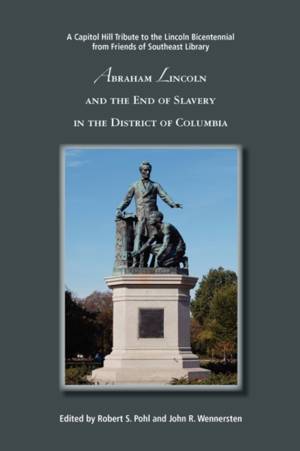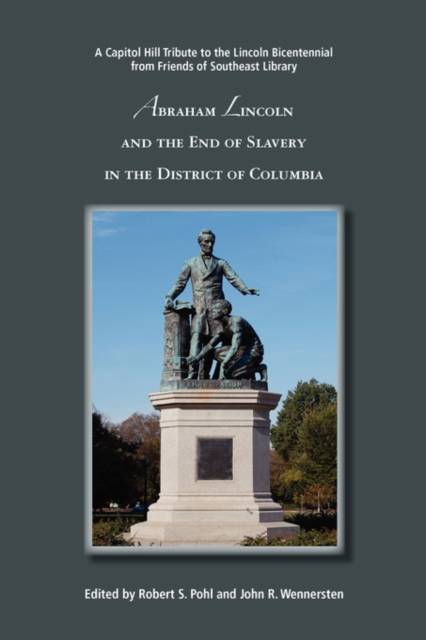
- Afhalen na 1 uur in een winkel met voorraad
- Gratis thuislevering in België vanaf € 30
- Ruim aanbod met 7 miljoen producten
- Afhalen na 1 uur in een winkel met voorraad
- Gratis thuislevering in België vanaf € 30
- Ruim aanbod met 7 miljoen producten
Zoeken
Abraham Lincoln and the End of Slavery in the District of Columbia
Robert S Pohl, John R Wennersten
Paperback | Engels
€ 28,95
+ 57 punten
Omschrijving
Slavery-furiously debated, yet recognized in the Constitution-was a stain on the nation's consciousness since the founding of the Republic. As the country grew, legal battles erupted over the fate of fugitive slaves and the rights of slave-owners to take their property into free states. Nowhere was the issue more sharply drawn than in the nation's capital, where government leaders saw first hand the shame and disgrace of legal slavery and the inherent moral conflict with guarantees in the Declaration of Independence. Decades of agitation for change came to fruition on April 16, 1862, when Abraham Lincoln signed legislation that ended slavery in the District of Columbia-nine months before the Emancipation Proclamation, which liberated slaves only in the Confederacy, and a full three years before ratification of the Thirteenth Amendment.
Specificaties
Betrokkenen
- Auteur(s):
- Uitgeverij:
Inhoud
- Aantal bladzijden:
- 156
- Taal:
- Engels
Eigenschappen
- Productcode (EAN):
- 9780578016887
- Verschijningsdatum:
- 1/04/2009
- Uitvoering:
- Paperback
- Formaat:
- Trade paperback (VS)
- Afmetingen:
- 152 mm x 229 mm
- Gewicht:
- 235 g

Alleen bij Standaard Boekhandel
+ 57 punten op je klantenkaart van Standaard Boekhandel
Beoordelingen
We publiceren alleen reviews die voldoen aan de voorwaarden voor reviews. Bekijk onze voorwaarden voor reviews.








